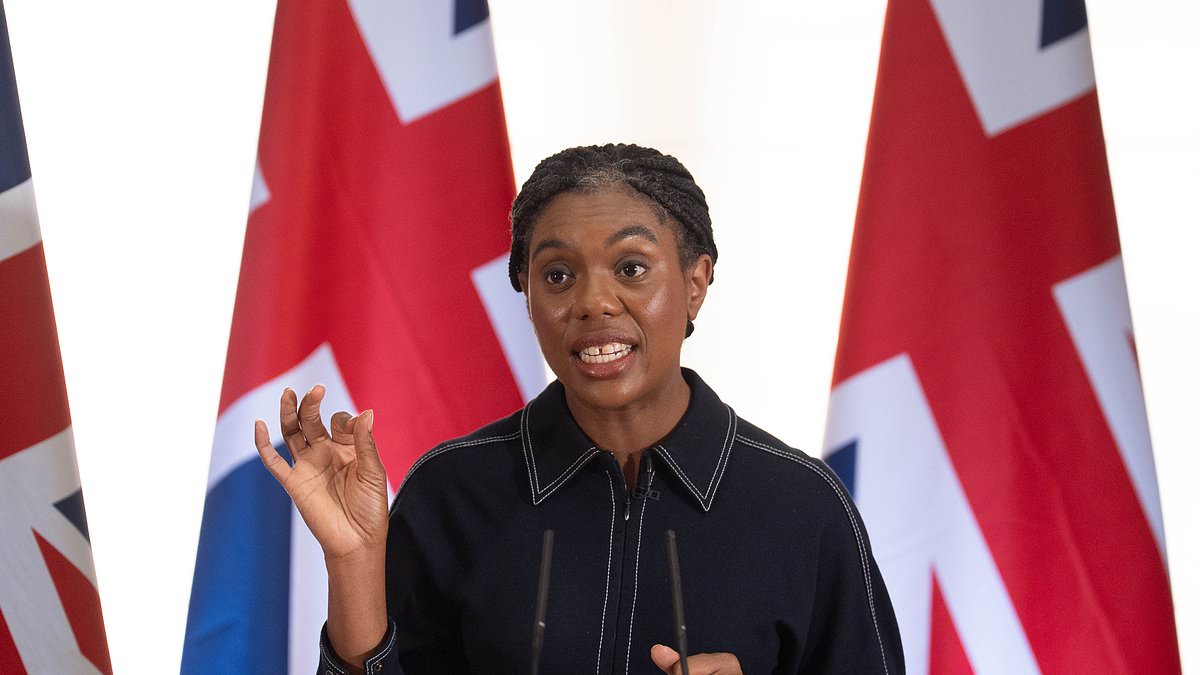Kemi Badenoch has revealed she refuses to meet or speak to constituents who cover their faces as she backed allowing bosses to ban female staff from wearing burkas.
The Conservative leader said she had a rule at surgeries in her North West Essex constituency that ‘you have to remove your face covering, whether it’s a burka or a balaclava’.
It came as she backed allowing office managers to bar staff from wearing the traditional Islamic robe for women, which has only a transparent veil allowing them to see.
However she stepped back from the idea of a nationwide ban on the garment, saying there were bigger issues when it came to integration.
Her remarks came after Reform’s chairman Zia Yusuf quit following a row over the subject after his colleague MP Sarah Pochin urged the Prime Minister to ban the burka ‘in the interests of public safety’- before rejoining on Saturday night.
Her position on burkas appeared to go further than that of shadow home secretary Chris Philp today.
He agreed that ’employers should be allowed to decide whether their employees can be visible or not’.
But asked if he would also ban face coverings at surgeries in his Croydon South constituency, he said: ‘I have in the past spoken to people obviously wearing a burka – I represent a London constituency – but everybody can make their own choices, that’s the point she was making, each employer should be able to make their own choices.’
Mrs Badenoch said Britain could enforce a ban on burkas but what needs to be addressed are pressing issues around integration.
She added that sharia courts and first-cousin marriage are an ‘insidious’ barrier to integration.
She said: ‘If you were to ask me where you start with integration – sharia courts, all of this nonsense sectarianism, things like first cousin marriage – there’s a whole heap of stuff that is far more insidious and that breeds more problems.
‘My view is that people should be allowed to wear whatever they want, not what their husband is asking them to wear or what their community says that they should wear.’
She added: ‘If you come into my constituency surgery, you have to remove your face covering, whether it’s a burka or a balaclava.
‘I’m not talking to people who are not going to show me their face, and I also believe that other people should have that control.
‘Organisations should be able to decide what their staff wear; it shouldn’t be something that people should be able to override.’
France is just one of a number of countries that have already banned the burka.
But Mrs Badenoch said: ‘France has a ban and they have worse problems than we do in this country on integration. So banning the burka clearly is not the thing that’s going to fix things.’
If employers started to tell staff to remove any religious clothing, they could face legal issues under equality and human rights laws on the grounds they were being discriminating.
An organisation would have to demonstrate its ban was for a legitimate reason, such as ensuring health and safety or enabling effective communication.
